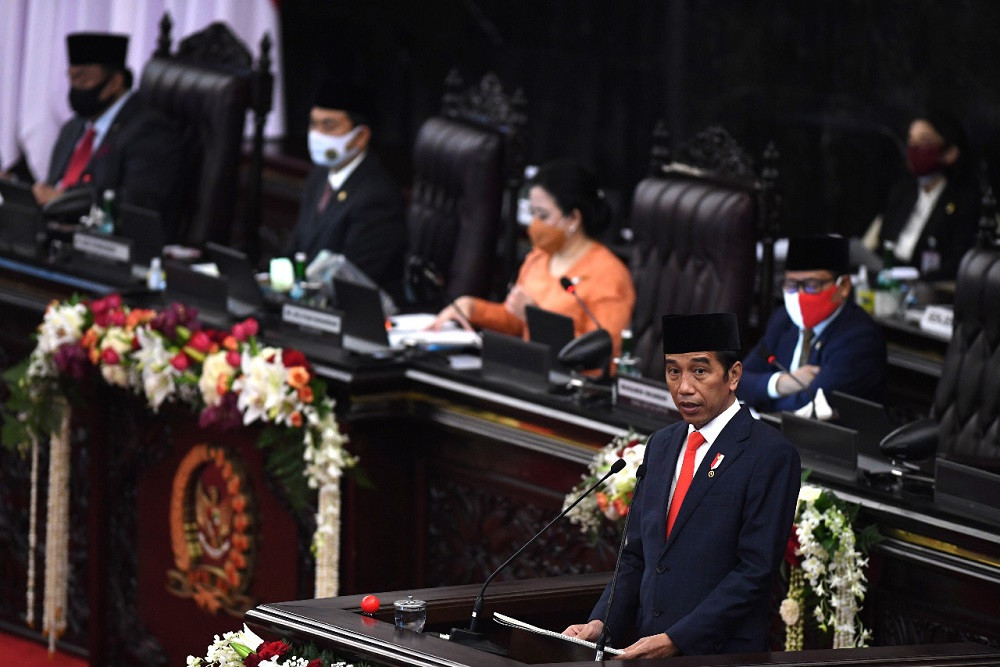Popular Reads
Top Results
Can't find what you're looking for?
View all search resultsPopular Reads
Top Results
Can't find what you're looking for?
View all search resultsThe big fiscal dilemma
The fiscal deficit increased from 2.2 percent in 2019 to 6 percent in 2020.
Change text size
Gift Premium Articles
to Anyone
T
he government and House of Representatives agreement in March 2020 to allow for the budget deficit to exceed the 3 percent legal limit in a bid to cope with the twin crises of health and economy showed great foresight. After huge spending to fight the pandemic, protect vulnerable people and maintain financial stability, the fiscal deficit increased from 2.2 percent in 2019 to 6 percent of gross domestic product in 2020. The deficit is estimated at 5.5-5.7 percent this year.
But the political decision, as stipulated in Law No. 2/2020, to return to the legal deficit ceiling of 3 percent by 2023, though welcomed then as a commitment to preserve integrity and prudential fiscal management, now presents a big dilemma to the government.
Recent developments suggest that it would be nigh on impossible to achieve the target, especially in the wake of a second wave of COVID-19 infections in the last week, which could again weaken consumer and business confidence and lead to a retightening of social mobility restrictions.
Theoretically, the target could be achieved either by raising tax revenues or cutting government spending, but the current state of affairs indicates both alternatives are extremely difficult. It would be rather impossible to raise tax revenues by over 20 percent annually between 2021 and 2023 due to the weak business condition, the cut in corporate income tax from 22 to 20 percent starting in 2022 and the generous tax incentives offered under the 2020 Job Creation Law in a bid to boost investment.
The overarching tax reform, as proposed in the bill on amendments to the general provisions on taxation, is expected to boost tax revenues starting next year as the new tax design will expand the coverage of value-added tax and introduce a 35 percent tax for the richest families. But given the botched manner in which the government proposed the bill to the House and the controversy over several new taxes stipulated in the bill, we do not expect the reform to run smoothly.
Hence, the best alternative is to cut government spending. The government plans to make an adjustment of about 1.5 percent of gross domestic product in the primary balance in 2022 and 2023 from minus 3.7 percent in 2020. But the World Bank warned in its latest report on Indonesian economy that premature fiscal consolidation risks deepening the economic crisis and paradoxically delaying the achievement of the deficit limit. A premature withdrawal of fiscal support could jeopardize the recovery and increase absolute poverty.
Rescheduling the deficit target through a special regulation in lieu of law could cost the government its policy credibility and lead into a downgrading of Indonesia’s sovereign credit rating and this could raise the costs of government borrowing, which are already among the highest among its peers.
This dilemma requires Finance Minister Sri Mulyani Indrawati to reexamine the draft 2022 budget proposal, which will be unveiled to the House in mid-August, tighten austerity measures, slash subsidies and other routine expenditures and even crosses out the items of development spending that do not significantly contribute to boosting economic recovery.










